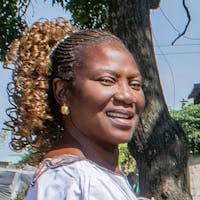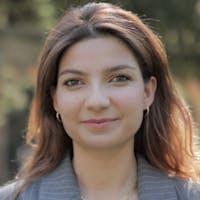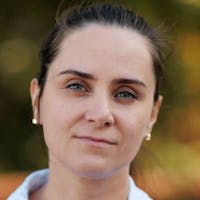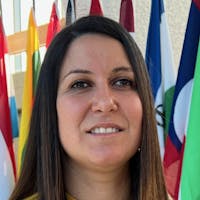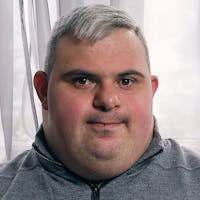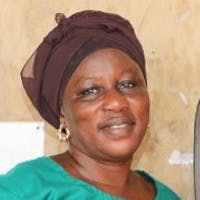My name is Morshed Ali. I am from Syria. When the war started, I was only 14 years old. I was preparing for my high school exams.
We had to go to Aleppo for these exams. The day we arrived, I was so tired. In the early hours of the morning, a bomb was found at the corner of our house but I heard nothing because I was fast asleep.
Even though it was very hard, I totally focused on books for 15 days. I also had the book, “The Alchemist” by Paulo Coelho with me. Whenever I wanted to run away from reality, I read it.
The exam system in Syria is like this: you don't sit for only one exam. Every subject has a different exam date, for instance math one day, biology the next day, and history another day. Exams continue for 18 days. They are all written, so you really need to concentrate.
The math exam was the one I was most worried about but also most fond of. My desk was next to the window, which was broken and glass was scattered all over it.
I told the invigilator and he said, “I don't care, you can either sit the exam or leave”.
I said OK. I took my T-shirt off and cleaned off the table, and then I started writing. I got a high mark for that exam so I know I have the knowledge.
Morshed is a big fan of books, they mean a lot to him. They helped him all the way from Syria to Turkey, acting as his best friends in both good and bad times.
© Kıvanç ÖzvardarMy family started to ask about where I would study. I decided to go to Turkey.
On August 18, 2014, at two in the afternoon sharp, my mother and I passed through the border gate into Turkey. It was a Monday. I will never forget it. She enrolled me in courses. We arranged a dormitory for me and she went back to Syria after 18 days.
My family did not want to leave Syria. Leaving Syria behind or going to different cities is not possible for them, even though they have had difficult times. I think my father and mother are like two olive trees; they cannot survive if you uproot them.
Morshed reads Turkish newspapers to learn the language. He speaks fluent Turkish and has developed a passion for Turkish literature.
© Kıvanç ÖzvardarI was on my own and I settled into life in the Turkish city of Mersin. I was super excited. There were so many things that I wanted to learn but I didn’t speak Turkish. So, I worked really hard to learn the language – watching cartoons helped.
I totally concentrated on the courses, like math, geometry and others for the university entrance exam. During those six months, even though I only took a few Turkish courses, I learned to speak Turkish by practicing it with others and reading literature.
Then I started taking the exams and I got great marks. Once the results were announced, I realised what I wanted. I mean, I turned towards the most loyal thing to me, the soil.
When I was a kid, I used to build houses out of soil, stone and water. I was constantly building one, then two, and even three storey-houses.
My gut told me that I should study architecture so that’s what I enrolled in.
Morshed AliSyrian architect
My gut told me that I should study architecture so that’s what I enrolled in. I told my parents that I wanted to be an architect. They did not object to it much because they knew that I would do it.
Actually, with the family, we realized that being physically together is not absolutely necessary. I love dreaming and I am quite good at it. Therefore, when I miss them I close my eyes, I just remember a past joyful event then I can live that moment again. It is sometimes nice but upsetting at the same time.
I got into Karadeniz Technical University. Some students yelled “Syrian” at me. In fact, I am neither proud of where I am from nor I am not proud because I do not think that it is something to be proud of. It is a total coincidence that I was born there. I have spent most of my mature years in Turkey. I have a feeling of belonging here. I want to give something in return to this country.
Morshed Ali now feels at home in Istanbul.
© Kıvanç ÖzvardarAfter graduation, I had to move to a big city immediately. I moved to Ankara for the first time. I carefully prepared a portfolio.
It took me almost a month - I prepared it by considering every detail of my architectural portfolio as well as my CV. During that period, I was trying to improve myself by attending different programmes.
The pandemic started in early 2020. Just when I started job applications, the job opportunities decreased. I had studied architecture and I wanted to turn an education I loved into a profession.
Since I could not find a job in Ankara, I decided to take my chances in Istanbul. The very day I arrived in Istanbul, a close friend of mine sent me the link to an ILO Work-Based Learning Programme called İŞMEP. Thanks to this ILO programme, I started working as an architect at a consultancy company, Tuana Projects.
As a Syrian, it is very difficult to have a formal job and to access social security. However, thanks to the İŞMEP programme, I started working under formal conditions. We also received various trainings and it was very useful for me.
Now formally employed as an architect, Morshed is working hard to build his career and challenge any constraints put before him.
© Kıvanç ÖzvardarIn my new job as an architect, I have worked on many projects abroad, especially in Middle Eastern countries - whether it is three-dimensional modelling visualization, planning or design.
There were, for example, mosque and school design projects, village designs, as well as shelter projects. What I want to focus on most is shelter projects. Because the biggest need of people, is for their accommodation to be completely solid.
So I am very focused on function, I have focused more on function than design.
Morshed has learned the art of Turkish coffee fortune telling and has become quite good at it. During a break at work, he reads the coffee grounds in his colleague’s cup.
© Kıvanç ÖzvardarOf course, there were many moments when I was desperate during my job search, such as when COVID-19 happened. There are so many things in the world that can bring us down but, what really matters is to find positive things among all this chaos.
I always worked through my sadness by drawing something, distracting myself, or by reading books that inspire me.
There are so many things in the world that can bring us down but what really matters is to find positive things among all this chaos.
Morshed AliSyrian architect
Of all the Turkish writers, I love Sabahattin Ali the most. He might even be my No. 1. One of his books touched me very much. Its name is "The Devil Inside Us” (İçimizdeki Şeytan).
The character of Ömer impressed me very deeply. There is a saying in the book that I'll never forget. I say it every day, every time I am down: "There is no devil in us! We are weak inside, we have a lack of will".
So rather than despair I thought how can I do my best to find a job?
I took part in programmes, improved my language and I tried to improve my English further as well, which is also a new language for me. I even started to learn French a little bit. I like to improve myself constantly.
Good things eventually happen somehow when you believe in them.

